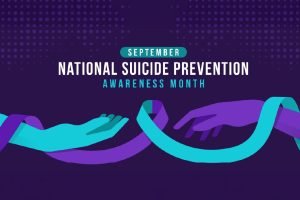Toxic parents exhibit harmful behavior towards their children, such as neglect, abuse, or manipulation.
The consequences of toxic parenting can be long-lasting and affect a child’s mental and emotional well-being. In this blog post, I hope to assist parents in identifying the signs of toxic parenting and take steps to break the cycle while exploring practical strategies parents can use to create a healthy and safe environment for their children. By identifying the signs of toxic parenting and taking action, parents can provide their children with the support and guidance they need to thrive.
Behaviors that signal toxic parenting.
Toxic parents exhibit certain behaviors that can be emotionally damaging to children. These behaviors include overprotectiveness/over-control, constant criticism/belittling, guilt tripping/emotional blackmail, lack of boundaries/privacy invasion, neglect/indifference, and gaslighting/manipulation. Below I will explain what those mean.
Overprotectiveness or over-control – describes parents who micromanage their children’s lives, do not allow them to decide for themselves, and do not let them experience natural consequences. This behavior may lead to children who cannot make their own decisions or develop self-confidence.
Constant criticism or belittling – involves parents who frequently criticize their children and make them feel inadequate or unworthy, leading to low self-esteem, anxiety, and depression.
Guilt-tripping or emotional blackmail – involves parents who use guilt or manipulation to get their children to do their bidding. This can lead children to feel responsible for their parent’s happiness and cannot set boundaries.
Lack of established boundaries or privacy invasion – parents who do not respect their children’s boundaries or privacy may cause children to feel violated and unable to trust others.
Neglect or indifference – parents who are emotionally or physically unavailable to their children are neglectful or indifferent. This behavior can lead to children who feel neglected, unloved, and unsupported.
Gaslighting or manipulation – are behaviors exhibited by parents who distort reality or manipulate their children’s emotions to maintain control. Children who grow up in such an atmosphere may doubt their own perceptions and feel confused, anxious, and insecure.
What is the impact of toxic parenting on children?
Toxic parenting can have both short- and long-term effects on children. Children whose parents (one or both) exhibit toxicity may experience short-term effects such as anxiety, depression, low self-esteem, and difficulty with emotional regulation. They may also struggle with relationships at school and with peers, as well as with authority figures.
In the long term, children of toxic parents may continue to struggle with mental health issues such as anxiety, depression, post-traumatic stress disorder (PTSD), and Complex PTSD (CPTSD). They may have difficulty forming healthy relationships and struggle with trust and intimacy. Sometimes, they may repeat patterns of toxic behavior with their own children.
Toxic parenting can also lead to a lack of self-care, self-love, and self-respect – further perpetuating negative relationships and mental health patterns. It’s crucial for individuals who have experienced toxic parenting to seek support in healing and building healthy relationships. Therapy and support groups can be helpful resources in this process.
Avoid Toxic Parenting!
To avoid toxic parenting, it’s essential to recognize and acknowledge toxic behavior, set healthy boundaries that respects your child’s autonomy, practice open communication and active listening, work on your own emotional issues and triggers, and seek help from a professional if necessary.
Recognize and acknowledge toxic behavior.
This involves being aware of your own behavior and how it may impact your child. Pay attention to patterns of overprotectiveness, criticism, guilt-tripping, lack of boundaries, neglect, and gaslighting.
Acknowledge when you make mistakes and take responsibility for your actions.
Set healthy boundaries and respect your child’s autonomy.
This means respecting your child’s privacy and individuality, allowing them to make age-appropriate decisions, not using them as emotional support, or treating them as an extension of yourself. It
also involves setting clear rules and consequences and enforcing them consistently. Practice open communication and active listening – actively listen to your child’s concerns and feelings without judgment and respond with empathy and respect. Be open and honest with your child about your own thoughts and feelings.
Work on your own emotional issues and triggers.
This involves identifying and addressing your own emotional issues, such as past trauma or unresolved conflicts, and seeking support from a therapist or counselor if necessary. It also means being aware of your own triggers and how they may impact your interactions with your child.
Seek help from a professional if necessary.
If you are struggling to break toxic patterns or are experiencing significant emotional difficulties, it may be helpful to seek treatment from a mental health professional. They can provide guidance and support in developing healthier parenting strategies and addressing underlying emotional issues.
In conclusion, toxic parenting can have severe negative impacts on children, but it can be avoided by recognizing harmful behavior, setting healthy boundaries, practicing open communication, working on emotional issues, and seeking professional help as needed.







